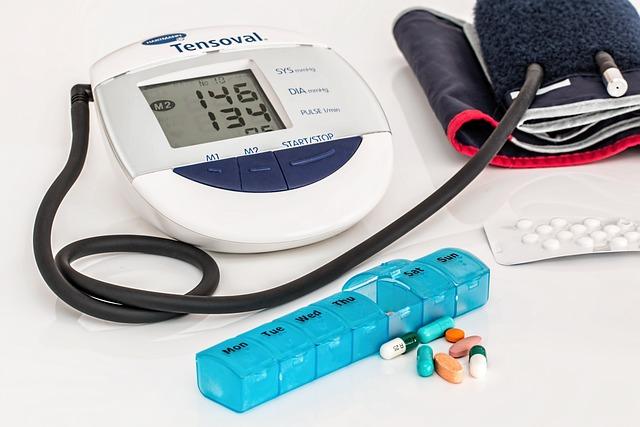In an era where health systems across the globe are grappling with unprecedented challenges, the World Health Organization’s african Region Health Expenditure Atlas 2023 emerges as a critical resource for policymakers, health professionals, and researchers alike. This comprehensive report not only provides a detailed analysis of health expenditure patterns across African nations but also identifies trends, gaps, and opportunities for investment in public health. By harnessing data from various sources,the Atlas offers a nuanced perspective on how financial resources are allocated within the health sector,revealing insights that can drive sustainable improvements in healthcare delivery. As Africa continues to navigate a complex landscape of health crises, demographic changes, and economic pressures, the findings of the Health Expenditure Atlas serve as an essential guide for strategic planning and informed decision-making, aiming to bolster the resilience and effectiveness of health systems across the continent.
WHO African Region Health Expenditure Atlas 2023 Unveils Financial Trends in Health Care
The recently released Health Expenditure Atlas for the African Region by the WHO has shed light on vital financial trends shaping health care systems across the continent. This comprehensive report highlights key statistics and insights regarding health financing, which are crucial for policymakers, health organizations, and stakeholders invested in improving the health landscape in Africa. Highlighted trends in the report include:
- Increased governmental spending on health in several nations.
- A noticeable rise in private health expenditures, suggesting a shift towards more consumer-driven healthcare.
- The ongoing disparities in health spending between urban and rural areas, underscoring critical infrastructure needs.
Moreover, the Atlas presents a compelling visualization of data that allows for easier comparison between different countries. As a notable example, the following table illustrates the percentage of GDP allocated to health expenditures in selected African nations:
| Country | Health Expenditure (% of GDP) |
|---|---|
| Nigeria | 3.7% |
| South Africa | 8.1% |
| Keny | 4.5% |
| Uganda | 7.5% |
This data serves as a critical resource, offering a foundation for informed decisions that can lead to enhanced healthcare strategies and funding allocations tailored to the region’s needs. A clear understanding of these financial trends is essential for tackling the pressing health challenges faced by many African countries today.
key Findings on Health Investment Disparities across African Nations
the analysis of health investment across various African nations reveals significant disparities that can affect the overall well-being of populations. In particular, the WHO African Region Health Expenditure Atlas 2023 highlights that while some countries allocate significant resources to health care, others lag significantly behind. Key insights include:
- Expenditure Variability: Health spending ranges dramatically, with some nations investing over $1,000 per capita annually, while others allocate less than $100.
- Impact of Economic Factors: Countries with stronger economies tend to spend more on health, emphasizing the correlation between economic stability and health investment.
- Quality of Care: Nations with higher health expenditure report better health outcomes, indicating that investment is crucial for public health betterment.
Further examining the regional trends, it becomes clear that health financing is unevenly distributed, leading to a two-tier system in many parts of the continent. The following table captures the stark differences in health spending among selected countries:
| Country | Health Expenditure (Per Capita) |
|---|---|
| Nigeria | $100 |
| South Africa | $1,200 |
| Keny | $300 |
| Rwanda | $700 |
This disparity not only poses challenges for governments but also calls for collaborative efforts to boost health financing and address the health care needs of underserved populations.Bridging this gap is critical for achieving equitable health outcomes and sustainable development across the African continent.
Strategic Recommendations for Strengthening Health Financing in the Region
Investment in health financing is crucial for improving healthcare outcomes across the region.To achieve this, stakeholders are urged to prioritize the following strategies:
- Increase Domestic Resource Mobilization: Governments should enhance their budget allocations for health, aiming for a percentage of the GDP that aligns with WHO recommendations.
- Leverage Public-Private Partnerships: Engaging the private sector can bring additional resources and innovation to health financing,thus improving service delivery.
- Enhance Financial Accountability: implementing robust financial management systems will ensure openness and build trust among stakeholders and the public.
Furthermore, regional collaboration is essential to effectively address the challenges posed by health expenditure gaps.Governments and policy-makers should consider the following initiatives:
| Initiative | Description |
|---|---|
| Regional Health Financing Forum | A platform for sharing best practices and strategies among member states. |
| joint investment Strategies | Collaborative projects that pool resources for large-scale health initiatives. |
| Capacity Building Programs | train health workers in financial management to enhance resource use. |
Impact of Health Expenditure on Public Health Outcomes in Africa
The intersection of health expenditure and public health outcomes remains a critical focus for nations across Africa.Increased investment in healthcare not only enhances the availability of necessary medical services but also plays a vital role in improving overall health outcomes. Several key areas illustrate how enhanced health spending can lead to significant improvements:
- Access to Care: Higher health expenditure allows for the expansion of healthcare facilities and the improvement of existing ones, especially in rural and underserved areas.
- Quality of Services: Investment in health workforce training and better medical supplies leads to higher quality care and improved patient outcomes.
- preventive Health Programs: Greater funding for vaccination, maternal health, and disease prevention initiatives reduces the burden of communicable diseases.
- Health Infrastructure: Development of infrastructure such as roads, clinics, and hospitals facilitates timely and effective health service delivery.
A recent analysis illustrated the correlation between rising health expenditures and falling mortality rates from preventable diseases. For example,in countries where health expenditure has risen by over 15% annually,a notable decline in maternal and child mortality rates was observed. strategic and sustained financial commitment to the health sector is paramount for the continent’s long-term public health success. The following table highlights some of the progress made in selected African nations:
| Country | Health expenditure (USD per Capita) | Maternal Mortality Rate (per 100,000 live births) |
|---|---|---|
| Nigeria | $86 | 512 |
| Kenya | $134 | 342 |
| South Africa | $570 | 134 |
| Ethiopia | $52 | 353 |
Future Directions for Sustainable Health Funding in the African Region
Investment in sustainable health funding is essential for the African region to promote resilience and enhance health systems. as countries navigate the complex landscape of healthcare financing, stakeholders must prioritize innovative financing mechanisms that align with regional health priorities. key strategies may include:
- Public-Private partnerships: Leveraging private sector investments can foster innovation and expand health services.
- Regional Health Financing Initiatives: Collaborative funding models between countries can optimize resource allocation.
- Integration of Technology: Mobilizing digital platforms to streamline health financing and delivery can improve efficiency.
Moreover, a targeted approach to funding should emphasize areas that yield the greatest health returns. Fostering an environment conducive to evidence-based budgeting and transparent financial management is crucial. In this regard, establishing metrics to measure financing effectiveness can provide invaluable insights.Consider the following table that outlines critical areas for future health funding:
| Funding Area | Potential Impact |
|---|---|
| Maternal and Child Health | Reduction in mortality rates and improved health outcomes. |
| Infectious Disease Control | enhanced preparedness and response to pandemics. |
| Nutritional Interventions | Improved health status and productivity among populations. |
Future Outlook
the “WHO African Region Health Expenditure Atlas 2023” serves as a crucial resource for understanding the complexities of health financing across the continent. By providing detailed insights into expenditure patterns and health outcomes, the Atlas highlights both the progress made and the challenges that remain in achieving worldwide health coverage in the African region. Policymakers, health practitioners, and stakeholders are encouraged to utilize this comprehensive tool to inform their strategies, allocate resources efficiently, and ultimately improve health services for the millions who depend on them. As countries in Africa navigate the intricate landscape of health finance, the findings contained within this Atlas will undoubtedly prove essential in guiding investment decisions and fostering collaborative efforts toward healthier futures for all.

